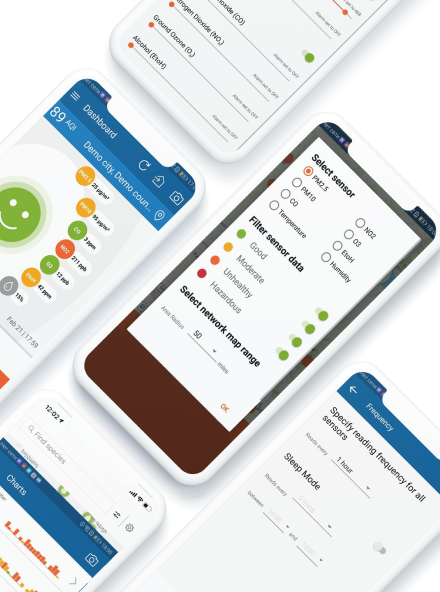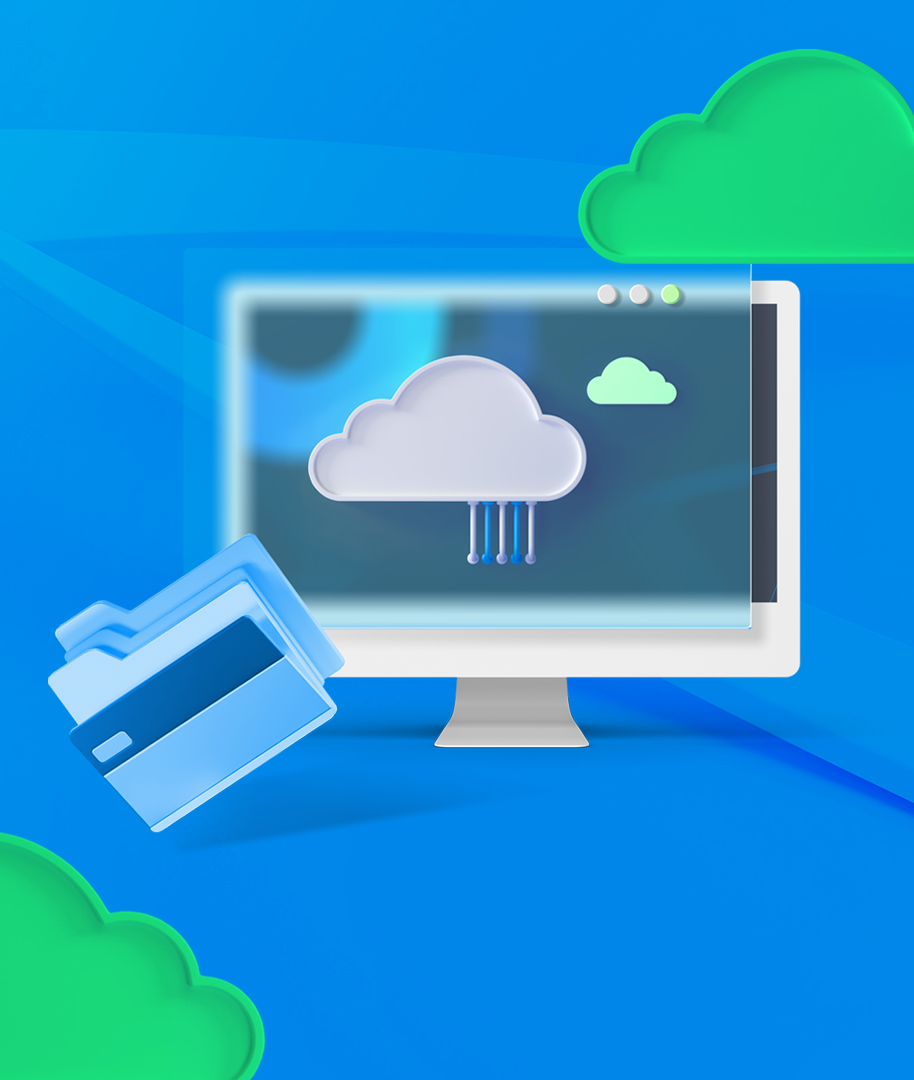
9 Fintech Software Development Trends in 2024: An Expert Roundup
9 Jan 2025
.jpg?sfvrsn=793a1d02_2)
The recent years have forced financial services companies to undergo rapid transformation, which, in turn, has propelled the growth of financial technologies. Never before had we felt the importance of fintech as we do now. It has helped us continue to function during the most critical times by giving us access to remote management of our assets. As we solidify our shift to the online realm, digital platforms will continue to experience tremendous transformation.
So what are some of the most popular fintech development trends to expect in 2025 and beyond? We asked some industry experts to weigh in.
1. Artificial Intelligence
“Artificial intelligence is not a new concept in financial technology; it has been driving the fintech and banking industry for quite some time. AI is here to stay and will be a dominant force in fintech in the next few BaaS is a significant component of the digital transformation roadmap approach of traditional banks and financial corporations. So, whether you like it or not, you should use numerous AI-powered solutions to improve your business.
And which ones? Here are the top AI game-changers in fintech.
Chatbots
Chatbots are an excellent AI-based solution for both websites and apps. You can easily improve the client experience and automate numerous operations with their help. AI chatbots can provide a more personalized experience by communicating with your consumers and quickly resolving their common questions.
Furthermore, chatbots are available 24 hours a day, seven days a week, making them a more cost-effective alternative, especially if you run an international financial company with consumers in different time zones.
According to Jupiter Research, chatbot engagements will save banks up to 862 hours in 2023. This will result in global savings of up to $7.3 billion. So, if you want to improve your company's customer service operations, chatbots are the way to go.
Voice Recognition
For the past several years, a handful of voice-based solutions have been on the increase. And for good reason! They increase work efficiency, promote communication, give day-to-day customer care, and make digital items more accessible.
It eliminates the need for your consumers to provide their credentials every time they call their bank to transfer money or execute a payment. The AI-powered solution will recognize their speech, speeding up their identification and allowing them to securely complete the purchase. Does this sound like the distant future? No longer! The voice payment revolution is approaching, and you should prepare for it. This way, you won't pass on any business possibilities.”
Tim Parker, Director of Marketing at Syntax Integration
2. Robotic Process Automation (RPA)
“Robotic process automation is a sort of process automation in which software robots or digital employees are used to automate processes that would normally be handled by humans. RPA is already being used in the financial services industry to cut costs and improve overall organizational efficiencies. Furthermore, financial institutions have employed RPA digital workers to automate a wide range of back-office processes, such as security checks, customer onboarding, account management, and closing, trial balance, credit card and mortgage processing, and more.”
Andrew Dale, the Technical Director at CloudTech24
3. Bank-as-a-Service (BaaS)
“Banking-as-a-Service platforms have evolved as a cost-effective and efficient means of offering financial services based on open banking concepts in recent years. In order to create new and creative digital services, banks and monetary institutions must use a service-oriented and composable/modular architecture approach. BaaS is a significant component of the digital transformation roadmap approach of traditional banks and financial corporations. Many more traditional financial institutions, on the other hand, are likely to cooperate with fintech firms to incorporate BaaS services in order to bring innovative technology in-house and enhance their services and offerings. BaaS will also play an essential role in speeding the growth and development of the financial industry, as well as helping businesses meet the growing expectations of their customers.”
Samuel DeCroes, President of Stock Trend Alerts
4. Accelerating the Switch to Mobile Banking
“Before selecting whether or not to open an account, some mobile banking customers examine a bank's mobile capabilities. Some people will switch banks if they are dissatisfied with the mobile banking service they are receiving. This is why fintech app quality and usability will continue to be important in 2022. Neobanks will have to focus on more than just the mobile experience.

To serve their customers remotely, physical banks must also build fintech apps. It's critical to ensure that fintech apps have the features that customers anticipate. The ability to place a temporary hold on a card and notify a financial institution about travel plans are considered the most valuable features by users. It's also critical to be able to register a card transaction dispute and log in using a fingerprint.
As a result, if you're planning to launch an app this year, don't forget to research your target audience and fulfill their new wants. People will switch to another bank if they can't find the app convenient enough.”
Travis Lindemoen, Managing Director of Nexus IT Group
5. Continual Development of Open Banking
“The most significant banking and fintech trend for 2022 has to be open banking. It takes advantage of APIs, allowing third-party developers to create apps and services around the financial institution to help users enjoy the online banking service through numerous platforms. Approximately 22% of banks already have implemented their API platforms, while 39% are working on it.”
6. Decentralized Finance
“DeFi is a top-notch and emerging trend in the finance industry. Organizations will count on various sets of technologies, for example, IoT, record-keeping decentralization, big data, edge computing, and online P2P systems, to provide monetary interaction.”
Stella Cooper, CEO at PaydayLoansUK
7. RegTech (Regulatory Technology)
“Last year, this subset of financial technologies gained significant traction. The ecosystem value grew 96% compared to 2020.

RegTech solutions help financial organizations reduce the cost and time of meeting regulatory compliance obligations. To do this, RegTech highly relies on AI and ML to automate routine tasks within compliance departments.
To give you an example, recently we started a collaboration with a Germany-based client, which is building a mobile solution that helps financial institutions to streamline the remote onboarding process of their customers and meet the Know-Your-Customer (KYC) and sanction screening requirements at the same time.
Apart from KYC and AML, common uses of RegTech include regulatory reporting, risk management, identity management and control, compliance, and transaction monitoring.”
Andranik Mirzoyan, Business Development Manager at VOLO
8. Decentralized Instruments
“When we look at the late 2010s, it was a very fulfilling time in terms of developing the next generation technologies that promised huge improvements on a global scale. I am not only talking about the improvements in the banking field, which also captured the spirit of stable growth unlike the last couple of decades when there was continuous pressure from the financial crisis. Since then, financial institutions finally had stable growth with the help of consistent political improvements all across the globe. Without a doubt, we lived through the most effective financial growth of modern times.
Today, I strongly believe 2022 will be a very enthusiastic year for the fintech field. I am especially curious about the effects of the mass adoption of decentralized instruments in finance. What we are talking about is possibly the single most important improvement in the perception of money, since its invention. Bitcoin and its descendants allow a trustless mechanism that doesn’t require centralized entities, which are the main building blocks of today's banking system. If you think about it, it's pretty certain that we will replace the whole monetary system with our computers in a couple of decades at most. Yes, our banks also use computers and take security measures with encryption algorithms, but as a software developer and a person who watched a lot of movies, I know they are not secure enough for the modern world. Not so surprisingly, blockchain technologies are.
My team and I are closely working on improving and optimizing some of the most sophisticated software in Geode Finance. The most important insight that I would like to share with you is, how fast fintech changes in the decentralized world. We were surprised by how many improvements we witnessed even in a single year. This is important because I know for a fact that Finance doesn’t expand as fast as Tech. It takes a lot of time for centralized entities to get used to new technologies. We are still using 70s tech in some areas of Banking solutions that are not fast or secure enough. Yet we somehow made it work with the internet, which is funny.
When I shared some current breakthroughs in our field with a friend from traditional finance, he said banks will not agree to work with these conditions and it will not work out for centralized entities in the end, sadly… Well, this underlines my thesis. Because I am certain that “conditions” will not wait for these foundations to agree with them.”
Ice Bear, Lead Developer at Geode Finance
9. Digital-Only Banks
“The pandemic hit many industries in their sore spots; however, the fintech market experienced a considerable surge, as everyone started using contactless payment methods. As the fintech industry continues to make finance simple, convenient, secure, and quiet for the customers, some radical changes may come our way. One of which could be the elimination of physical banks.
The adoption of digital-only banks through the years of the pandemic has shown that they’re here to stay, especially since they offer the utmost convenience by eliminating long queues, tedious paperwork, and the need to visit the bank in person. Digital-only banks offer services like P2P transfers, international remittance, contactless MasterCard with free transaction fees, and the ability to buy various cryptocurrencies like Bitcoin, Ethereum, and many more without having to interact with a human.”
Jacob Martin, Software Engineer at SPACELIFT
Final Words
If you are looking to leverage the latest fintech technologies in order to seize new opportunities for your business, drop us a line, and our business development team will be in touch with you to discuss how we can help you get there.
More helpful resources:
- A B2B Dynamic Pricing Solution for the Client's Revenue Management System
- Finance in Motion: Automating Internal Business Operations to Foster Efficiency
- MobiDram: A Future-Proof Mobile Payment Sytsem



